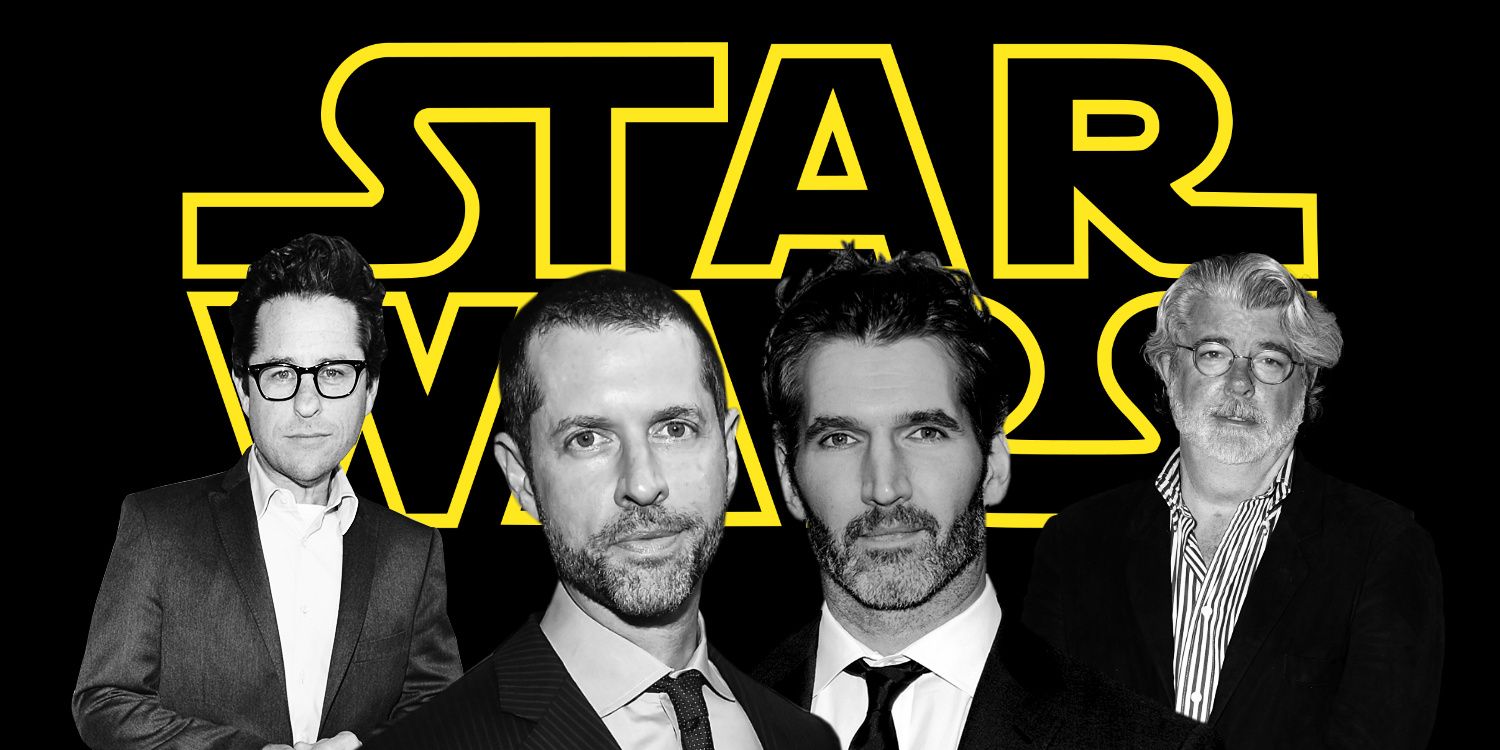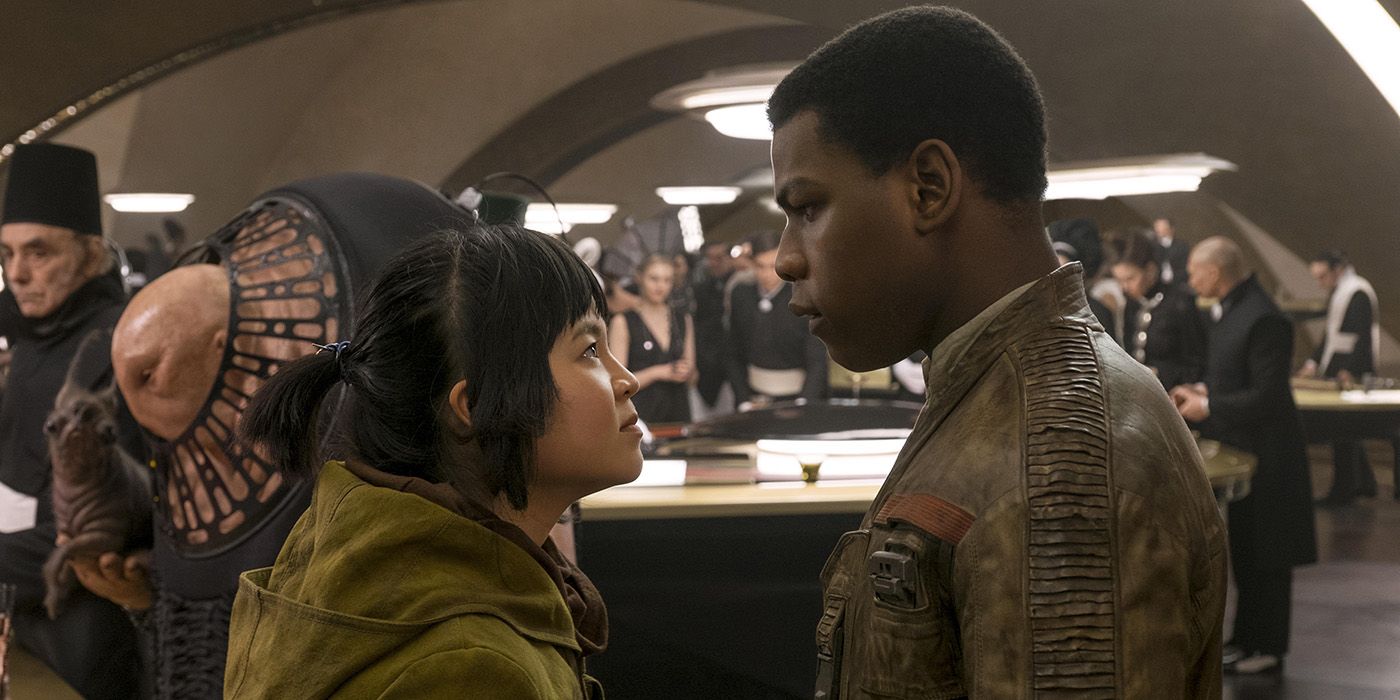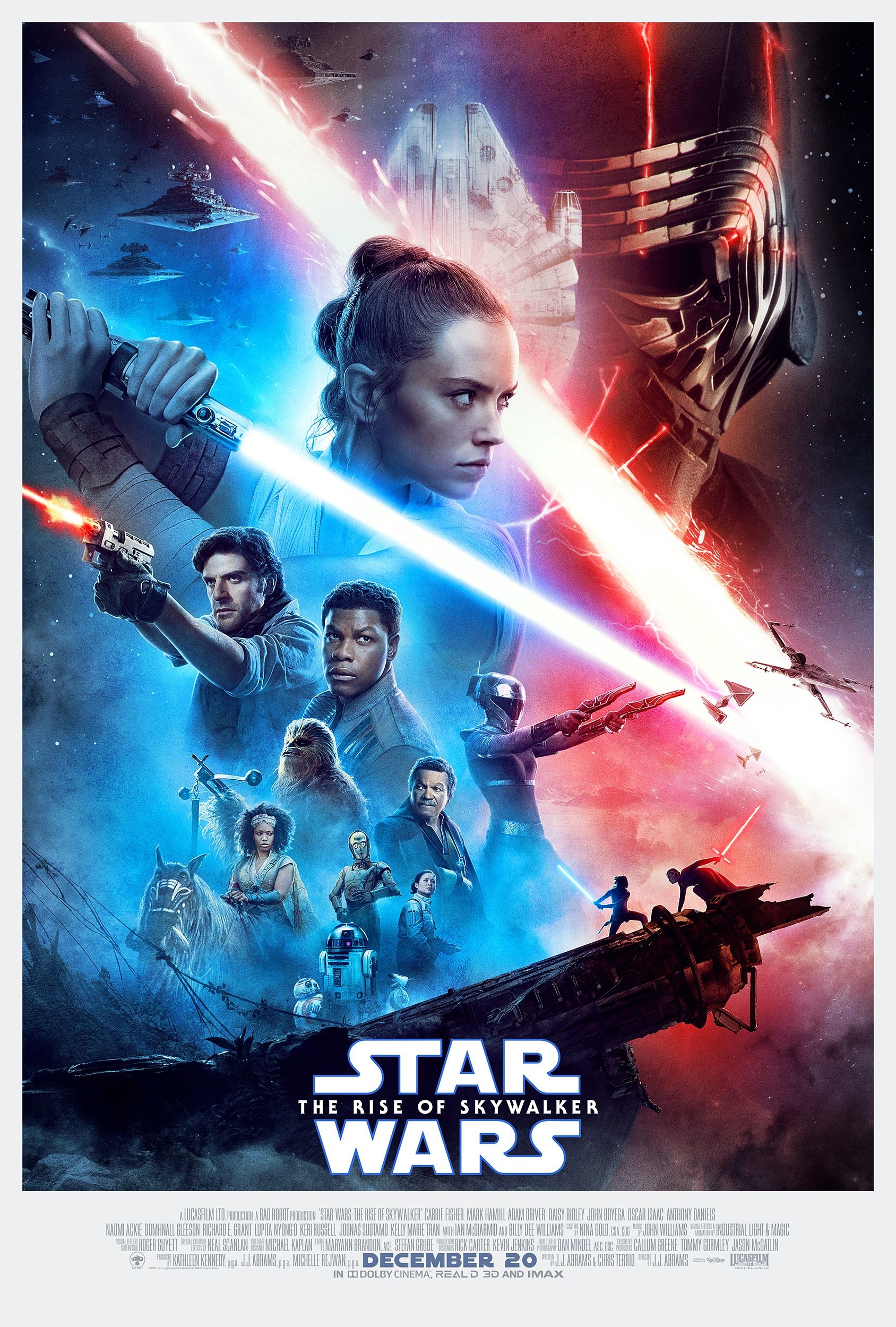A new report reveals that in 41 years of the Star Wars franchise, 96 percent of writers and directors hired by Lucasfilm for the movies are white men. George Lucas introduced the world to a galaxy far, far away in 1977 with Star Wars: A New Hope, a space opera he wrote and directed. The stories of Luke Skywalker (Mark Hamill), Leia Organa (Carrie Fisher), and Han Solo (Harrison Ford) captured the attention of moviegoers around the world and inspired a legion of dedicated fans spanning multiple generations. Though it seemed the franchise had concluded with the final installment of Lucas' prequel trilogy, Disney acquired Lucasfilm in 2012 and announced a revival of the Star Wars film series.
The episodic storyline was relaunched with J.J. Abrams' Star Wars: The Force Awakens in 2015, but Disney and Lucasfilm also put standalone anthology movies into development, the first of which was Gareth Edwards' Rogue One: A Star Wars Story in 2016. Rian Johnson's Star Wars: The Last Jedi is the latest entry of the franchise to hit theaters, but there are plenty more coming, including Ron Howard's Solo: A Star Wars Story, Johnson's new trilogy, and the recently announced series of films from Game of Thrones creators David Benioff and D.B. Weiss. However, as Lucasfilm puts more and more movies into development, fans have wondered when the studio will hire a man of color, woman of color, or white woman to helm or direct a Star Wars movie.
Related: What Star Wars Movies Are Coming Out?
Now Variety's Maureen Ryan crunched the numbers in terms of gender and racial representation in major creative roles on the past and confirmed upcoming Star Wars movies. For 17 total films - including the original, prequel, and current trilogies, confirmed anthologies, Johnson's trilogy, and the new series from Benioff and Weiss (which Ryan estimates will include three films, though Lucasfilm did not announce the exact number of movies they'll produce) - Lucasfilm hired a total of 24 people in roles as writers or directors. Of those 24 people, all but one were white men; the exception is Leigh Brackett, who received a screenplay credit on 1980's The Empire Strikes Back. Ryan summed up her findings: "Otherwise, no men of color, women of color or white women have held these positions. The franchise’s leading creative voices have been white men 96% of the time."
For her findings, writers included anyone who received a screenplay or story credit on a Star Wars film. Ryan also included writers and directors who were fired from or left confirmed Star Wars projects, including Star Wars IX's Colin Trevorrow as well as Solo's Phil Lord and Chris Miller. However, Josh Trank, who was attached to direct a Star Wars standalone film before departing after the failure of his Fantastic Four, is not included in Ryan's breakdown (though, if he were included, the percent calculated by Ryan wouldn't change). The breakdown also only includes feature films, and doesn't include those who have worked on Star Wars TV series like Star Wars: The Clone Wars and Star Wars Rebels.
To be clear, this breakdown of representation only looks at those who are writing and directing Star Wars movies; Ryan made note that the Star Wars movies released since 2012 have made strides in terms of more diverse casts and characters. However, movie writers and directors are undoubtedly the most important roles in terms of shaping and bringing these stories to life. And the call for more diversity in these creative roles extends beyond the galaxy far, far away.
With the likes of Patty Jenkins' Wonder Woman and Jordan Peele's Get Out finding critical and financial success, and hype surrounding Ryan Coogler's Black Panther and Ava DuVernay's A Wrinkle in Time, movie fans have made it clear they're interested in stories told from other perspectives. While it's possible Lucasfilm may hire men of color, women of color, and white women for their upcoming films - including those from Johnson, Benioff and Weiss - many fans are frustrated by the current lack of diversity in major creative roles on the Star Wars franchise. And looking at the numbers presented by Ryan, it's clear to see why.
Next: Everything We Know About Benioff and Weiss’ Star Wars Movies
Source: Variety




